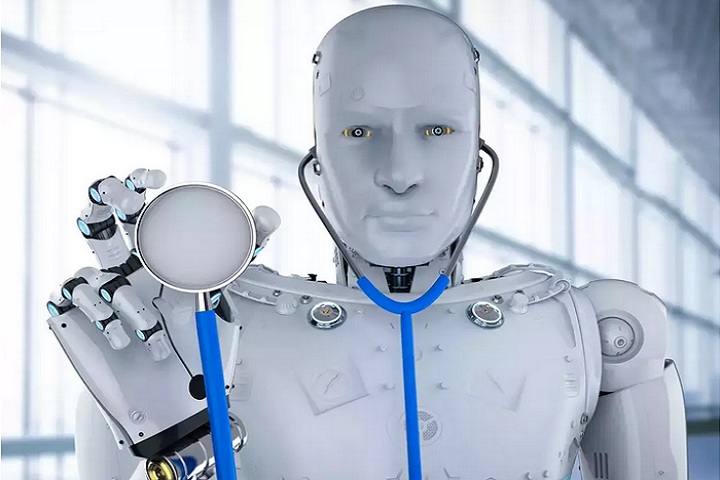The Industrial Technology Research Institute (ITRI), Taiwan’s largest and one of the world’s leading high-tech applied research institutions, invites you to its event site for CES 2021 to view its innovations in artificial intelligence (AI), robotics and e-health.
Its highlight technologies include the Dual Arm Robot System (DARS); the Self-Learning Battery Management System (SL-BMS); the iCardioGuard wearable physiological and psychological monitoring system; the Handheld Skin Quality Optical Coherence Tomography device for skin quality analysis; and the Sleep Learning Technology (SLT) for learning and memory improvement during sleep.
WHAT:
- ITRI’s AI and robotics technologies at CES 2021 include:
- The Dual Arm Robot System (DARS) is a human-like robot developed for multiple applications. With its two slim robotic arms and anthropomorphic hands, DARS can perform various tasks without using specifically designed tools. Advanced sensor technologies and machine learning algorithms enable its versatility.
- The Self-Learning Battery Management System (SL-BMS) accurately estimates battery status in real time, including the remaining capacity, aging capacity, power-limited capacity and maximum power. For electrical vehicle applications, SL-BMS monitors energy consumption and transfers battery information into mileage information to eliminate range anxiety.
- The UVC LED Water Sterilizer System HydroNovation provides immediate water sterilization by killing 99.9 percent of bacteria. It uses UV LED as its light source and reduces the module volume by one-third compared to a mercury lamp sterilizer. The system is ideal for emergency humanitarian assistance, disaster relief, and areas with poor sanitation.
- ITRI’s e-health wearable technologies at CES 2021 include:
- iCardioGuard is a wearable device for long-term real-time monitoring of physiological and psychological status for home and elder care. The device incorporates multi-sensing microwave and ECG technology and a cardio/psycho status analysis method for continuous cardiovascular monitoring and emotion/pressure/fatigue analysis.
- The Heart Guardian is a non-invasive wearable device that monitors cardiac output, heart rate and stroke volume. With a miniature, high-sensitivity patch-type transducer, a low-power Doppler ultrasound signal processing chipset, and a mobile computing device, the Heart Guardian offers continuous real-time monitoring of patients with heart disease or a sleep disorder.
- iSmartweaR measures physiological conditions including heart rate and respiratory rate using fabric antenna sensing and non-contact nanosecond pulse near-field sensing (NPNS) technology. The system detects signals from up to 20 centimeters, different from existing smart clothing technologies requiring contact with the wearer’s skin. It has been verified for hospital night care with high accuracy. Medical workers can access the real-time information with a mobile app.
- iDarlingWeaR is a wearable innovation for infant healthcare featuring ITRI’s harmless low-power radar sensing technology. Caregivers need only attach the device to the baby’s blanket for continuous heartbeat and respiratory monitoring. iDarlingWeaR also detects whether the baby is asleep or awake and sends alerts if it detects abnormality.
- ITRI’s e-health monitoring and inspection technologies at CES 2021 include:
- The Handheld Skin Quality Optical Coherence Tomography analyzes skin quality by rapid high-resolution 3D imaging of skin structure. The device combines an opto-mechanical-electronics controller and an image processor to provide 3D optical biopsy using a broadband near-infrared light source.
- Sleep Learning Technology (SLT) enhances memory and learning during sleep. It features a contactless solution for sleep phase detection and automatically adjusts light intensity for better sleep. In deep sleep, the device plays audio learning material to boost memory recall and consolidation and improve learning. Its technologies include recurrent neural network (RNN)-based Wi-Fi channel state information (CSI) sleep phase detection and comfortable sleep light technologies.
- The Handheld Ultrasound System performs ultrasound exams anywhere, anytime, and saves critical time in emergency and intensive care. The 64-channel system supports changeable transducers and can process B-mode and color Doppler mode images. In the future, deep learning technology can be integrated to perform quantitative analysis for diagnosis of liver diseases.
- The Measurement Technique for Lumbar Spine X-Ray Images uses deep learning modules and image processing algorithms to reduce time and labor for X-ray interpretation. It also provides X-ray imaging simulation and assists with surgical planning, clinical and auxiliary analysis.
- The AI Decision Support Technology of Fundus Image in Diabetes Mellitus is the world’s first AI detection technology to locate, provide classification models and determine the severity of diabetic retinopathy (DR) lesions. It also uses AI to detect DR symptoms, provide decision support for ophthalmologist referrals, and optimal treatment timing for Clinical Significant Macular Edema (CSME).
About ITRI
Industrial Technology Research Institute (ITRI) is one of the world’s leading technology R&D institutions aiming to innovate a better future for society. Founded in 1973, ITRI has played a vital role in transforming Taiwan’s industries from labor-intensive into innovation-driven. To address market needs and global trends, it has launched its 2030 Technology Strategy & Roadmap and focuses on innovation development in Smart Living, Quality Health, and Sustainable Environment. It also strives to strengthen Intelligentization Enabling Technology to support diversified applications.
Over the years, ITRI is dedicated to incubating startups and spinoffs, including well-known names such as UMC and TSMC. In addition to its headquarters in Taiwan, ITRI has branch offices in the U.S., Europe, and Japan in an effort to extend its R&D scope and promote international cooperation across the globe.



















